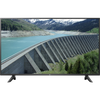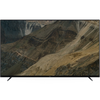A comparison of specs, key information, reviews, and best pricing from top retailers
Last updated -- hours ago | Report incorrect information
What we think

The PerfectRec TV team Learn more
Updated January 10, 2024·
The LG UP7000 is much less expensive and could suit your needs if you're looking for a more budget-friendly option. However, its picture quality, bright room performance, and overall viewing experience for movies and gaming are only average. The Sony A80K, while much more expensive, offers significantly better picture quality, making it ideal for a high-end home theater experience. It has an edge in bright rooms and is highly recommended for both movies and gaming because of its superior performance. Choose the LG UP7000 if you want to save money and need a basic TV. Opt for the Sony A80K if you want a premium viewing experience and are willing to invest more. Give Feedback
this description is based on the product variant with some specs and product variant with some specs. At the time of writing, the variant with some specs cost some dollars and the variant with some specs cost some dollars.
Advantages of the LG UP7000 (LCD)
- The LG UP7000 (LCD) has no clear advantages over the Sony A80K (OLED).
Advantages of the Sony A80K (OLED)
- Good for bright room
- Excellent for dark room
- Very good for gaming
- Excellent for movies & TV
- Excellent for sports
- Very good for news, talk, & other TV
- Very good for cartoons & animation
- Very good for use as monitor
- Best in class for upscaling
- Best in class motion processing
- Excellent viewing angle
- Very good reflections
Key differences
Picture Quality
5.6
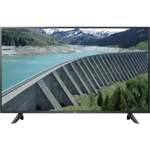
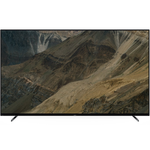
8.6
5.37/10
CONTRAST
10.00/10
5.8/10
COLOR VOLUME SCORE
7.4/10
LED
PANEL TYPE
WOLED
IPS
PANEL SUB-TYPE
WBE
The Sony A80K (OLED) has very good picture quality, while the LG UP7000 (LCD) has poor picture quality.
Movies & TV
5.1


9.1
5.37/10
CONTRAST
10.00/10
5.1/10
BLACK UNIFORMITY
10.0/10
7.5/10
UPSCALING
10.0/10
Yes
HDR10 SUPPORT
Yes
No
HDR10+ SUPPORT
No
No
DOLBY VISION SUPPORT
Yes
The Sony A80K (OLED) is excellent for movies & TV, while the LG UP7000 (LCD) is poor.
The LG UP7000 has lower contrast, lacks local dimming, and shows poorer black uniformity, leading to less stellar movie experiences especially in dark scenes. On the other hand, the Sony A80K with its superior contrast, effective local dimming, and excellent black uniformity provides a much more immersive and true-to-life picture when viewing movies and cinematic content.
Sports
6.5


9.2
6.0/10
MOTION PROCESSING
10.0/10
60Hz
REFRESH RATE
120Hz
10.0/10
INPUT LAG SCORE
7.0/10
7.5/10
UPSCALING
10.0/10
6.8/10
SDR BRIGHTNESS SCORE
7.0/10
Yes
HLG SUPPORT
Yes
The Sony A80K (OLED) is excellent for sports, while the LG UP7000 (LCD) is only fair.
The Sony A80K excels in sports due to its superior motion processing capabilities and excellent response time, reducing blur and making fast action more fluid, while its OLED panel offers wide viewing angles and effective reflection handling. On the other hand, the LG UP7000, despite decent viewing angles, suffers from slower response time and less effective motion processing, impacting its performance during sports, notably during fast-moving scenes.
Gaming
5.6


8.8
5.9/10
RESPONSE TIME SCORE
9.4/10
10.0/10
INPUT LAG SCORE
7.0/10
6.0/10
MOTION PROCESSING
10.0/10
0.0/100
GAMING LOCAL DIMMING
100.0/100
5.9/10
GAME HDR BRIGHTNESS SCORE
7.0/10
The Sony A80K (OLED) is very good for gaming, while the LG UP7000 (LCD) is poor.
The LG UP7000 has a lower response time and the same input lag compared to the Sony A80K, which offers an excellent response time, making the A80K better suited for gaming where fast reaction times are critical. Additionally, the A80K has a higher refresh rate, which allows for smoother motion during fast-paced games, enhancing the overall gaming experience.
Cartoons & Animation
5.6


8.5
5.8/10
COLOR GAMUT SCORE
8.1/10
5.8/10
COLOR VOLUME SCORE
7.4/10
6.8/10
SDR BRIGHTNESS SCORE
7.0/10
5.2/10
COLORS OUT OF THE BOX SCORE
8.0/10
6.6/10
GRAY UNIFORMITY
9.6/10
The Sony A80K (OLED) is very good for cartoons & animation, while the LG UP7000 (LCD) is poor.
News, Talk, & Other TV
5.9


8.9
6.8/10
SDR BRIGHTNESS SCORE
7.0/10
7.5/10
UPSCALING
10.0/10
The Sony A80K (OLED) is very good for news, talk, & other TV, while the LG UP7000 (LCD) is poor.
The LG UP7000, being an LCD TV, has lower contrast and upscaling abilities compared to the Sony A80K OLED TV, which results in a less vivid and sharp viewing experience for news, talk shows, and TV programs. Additionally, the Sony A80K's exceptional SDR brightness, color accuracy out of the box, and color gamut enable it to produce more vibrant and true-to-life images.
Bright Room
5.9


7.0
6.8/10
VIEWING ANGLE
9.1/10
6.8/10
SDR BRIGHTNESS SCORE
7.0/10
5.7/10
HDR BRIGHTNESS SCORE
6.8/10
6.0/10
REFLECTIONS SCORE
8.9/10
The Sony A80K (OLED) is good for bright room, while the LG UP7000 (LCD) is poor.
The LG UP7000 struggles in bright rooms due to its fair SDR brightness and fair reflection handling, while the Sony A80K is suitable for bright rooms as it offers good SDR brightness and very good reflection handling. Additionally, the A80K's OLED technology provides better contrast and color volume, enhancing the viewing experience in various lighting conditions compared to the UP7000's LCD screen.
Cost
$620


$1,698
$0
$500
$1,000
$1,500
$2,000
$2,500
$3,000
The LG UP7000 (LCD) has a price of $620 and the Sony A80K (OLED) costs $1,698.
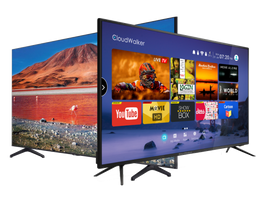
Let Us Help Find Your Perfect TV
Find your new TV
Give feedback
We’re constantly working to improve.
How the LG UP7000 (LCD) and the Sony A80K (OLED) compare to other TVs
Spec Comparison
| LG UP7000 (LCD) | Sony A80K (OLED) |
GENERAL | |||
|---|---|---|---|
| Price | |||
$620 | $1,698 | ||
Brand | |||
Brand | LG | Sony | |
Release Date | |||
Release Date | November 4, 2021 | June 2, 2022 | |
Full name | |||
Full name | 65UP7000 | XR-65A80K | |
Screen Size | |||
Screen Size | 65" | 65" | |
Screen Resolution | |||
Screen Resolution | 4K | 4K | |
TV FEATURES | |||
|---|---|---|---|
Operating System | |||
Operating System | webOS | Android TV | |
Sound Quality Score | |||
Sound Quality Score | 7/10 | 8.9/10 | |
NextGen Ready | |||
NextGen Ready | No | Yes | |
HDMI Ports | |||
HDMI Ports | 2 | 4 | |
Coax Ports | |||
Coax Ports | 1 | 1 | |
DISPLAY QUALITY SCORES | |||
|---|---|---|---|
Picture Quality Score | |||
Picture Quality Score | 5.6/10 | 8.7/10 | |
Bright Room Score | |||
Bright Room Score | 6/10 | 7.1/10 | |
Gaming Score | |||
Gaming Score | 5.7/10 | 8.8/10 | |
Movies & TV Score | |||
Movies & TV Score | 5.1/10 | 9.1/10 | |
Sports Score | |||
Sports Score | 6.5/10 | 9.2/10 | |
PHYSICAL | |||
|---|---|---|---|
Dimensions w/o Stand (H x W x D) | |||
Dimensions w/o Stand (H x W x D) | 33.2" x 57.5" x 3.5" | 33" x 57.1" x 2.1" | |
Dimensions with Stand (H x W) | |||
Dimensions with Stand (H x W) | 36" x 57.5" | 33.9" x 57" | |
Weight without Stand | |||
Weight without Stand | 37.9 lbs | 50.7 lbs | |
VESA Mount | |||
VESA Mount | 400 x 300 | 300 x 300 | |
DISPLAY | |||
|---|---|---|---|
Color Depth | |||
Color Depth | 10 bit | 10 bit | |
Black Frame Insertion | |||
Black Frame Insertion | No | Yes | |
Auto Low Latency Mode | |||
Auto Low Latency Mode | Yes | Yes | |
Contrast | |||
Contrast | 5.4/10 | 10/10 | |
Local Dimming | |||
Local Dimming | 2.5/10 | 10/10 | |
SOUND | |||
|---|---|---|---|
Speaker Setup | |||
Speaker Setup | 2.0 | 3.2 | |
Speaker Power | |||
Speaker Power | 20 W | 50 W | |
Dolby Atmos | |||
Dolby Atmos | Yes | Yes | |
DTS:X | |||
DTS:X | No | Up to DTS Digital Surround, Bypass only | |
Shopping
Sony A80K (OLED)
See more
Dig into reviews and images
USA Today
Michael Desjardin | December 2022
"It’s a high-end TV through and through something that becomes clear the moment you glance at its stunning picture. The A80K’s surgically precise contrast control is likely the first thing you’ll notice about its picture ... every piece of content looks better when this amount of precision is available. Color accuracy is another strong suit; the A80K features fantastic out-of-the-box color accuracy in the Custom picture mode."
Get a great deal on the LG UP7000 (LCD) or the Sony A80K (OLED)
About LG
LG, a prominent TV brand from Korea, has played a significant role in popularizing OLED TVs. OLED technology is hailed as the future of TV technology. Their TVs employ WebOS, a proprietary smart TV software that not only offers seamless functionality but also includes gaming-specific features, earning praise from players worldwide. Often regarded as the gateway to unparalleled viewing experiences, LG's mid-range OLEDs come highly recommended, making them a worthwhile investment for those willing to stretch their budget for superior quality.
About Sony
Sony stands as a highly experienced and widely trusted TV manufacturer, earning a reputation that surpasses all others. A Japanese company, Sony has been making TVs for far longs than it has been making Playstation game consoles. Sony's high-end TVs are often regarded as the ultimate choice for videophiles, representing the epitome of quality, albeit at a premium price point. Renowned for their advanced and precise motion handling, as well as their cutting-edge local dimming algorithms, Sony consistently delivers unparalleled performance in these areas. They include Google TV software with all their TV sets, which grants access to the largest selection of apps available and they also include Bravia Core which is a movie streaming platform specifically for Sony TVs that offers higher picture quality by using more bandwidth.
Give feedback
We're constantly perfecting our model
TV guides you might be interested in
More comparisons for you
FAQs
FAQs about TVs
Why trust us
This information was produced and vetted by the PerfectRec TVs team. We are a product research and recommendation organization that meticulously reviews and evaluates the latest TV information and makes it digestible for you.
By the numbers
385
TVs evaluated
33,110
TVs stats compiled
21
Proprietary TVs ratings developed
122,430
Recommendations made
18,365
Consumer hours saved
About the TV team
Joe Golden, Ph.D
CEO and TVs Editor
Joe is an entrepreneur and lifelong electronics enthusiast with a Ph.D in Economics from the University of Michigan.
Jason Lew
Staff Expert & Software Engineer
Jason is a staff expert and software engineer that has been making laptop recommendations for 7 years and moderates one of the largest laptop subreddits.
Chandradeep Chowdhury
Staff Expert & Software Engineer
Chandradeep is a staff expert and software engineer and expert in televisions and monitors. He’s been making monitor recommendations for ten years.
Jaime Roldán
TVs Expert
Jaime is a Colombia-based TV expert. He is an electronics engineer with 8 years of experience in the telecom sector and has been making TV recommendations for 12 years.
